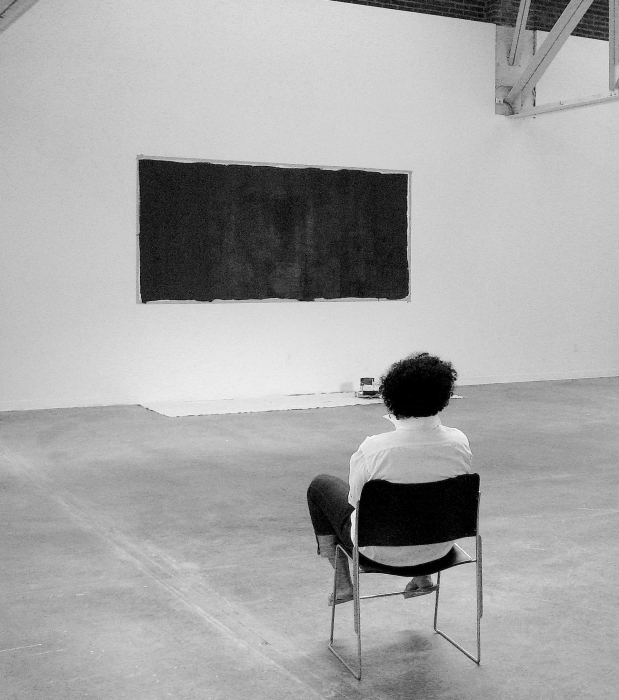Jennie C. Jones
June 2020, Artist Playlists
About the Playlist
Jennie C. Jones: Future Days / Yesterday (the Early 1970s)
Created several weeks ago, the release of Jennie C. Jones's playlist is now particularly significant. Envisioned as a listening session, Jones selection elevates insurrectionary voices and insists upon the importance of both listening and taking action right now.
Listen here: Spotify, Apple Music
Inspired by Dia Art Foundation’s formative years, this playlist of music from the early 1970s explores forms of protest that break through into a sonic place of rebellious generosity.
Within this listening session the energy of protest functions on all levels—personal, political, and creative. Folded into that protest is anger, hopefulness, heartache, experimentation, and perhaps also a rebellion against one’s own fear of taking risks. It feels like a poignant moment to highlight those who have worked against the grain and embraced antiestablishmentarianism in their creative processes, reflecting various modes of refusal. Isolation can be incubation and I have felt deeply nourished by these sonic pioneers.
Mindful of song titles and encompassing folk, funk-rock, avant-jazz, and Afrobeat, this set opens (like Woodstock) with Richie Havens’s gritty, cautious optimism: this edition of “There’s a Hole in the Future” was recorded live in Paris in late 1969. The playlist progresses and weaves freely through Andrew Hill’s experimental album of choral works Lift Every Voice to early head-banging Funkadelic tracks from their debut Maggot Brain. The raucousness of that album works seamlessly in tandem with the track “Future Days” by German band CAN with the band’s original lead singer—African-American artist Malcolm Mooney.
Next the session opens into the galaxies of Pharaoh Sanders, Sun Ra, Fela Kuti, and the incomparable Art Ensemble of Chicago. Then, it moves into four recordings from 1970–71 by amazing women: Alice Coltrane preforms live, floating above the audience; Yoko Ono opens her box; Nina Simone speaks truth to power in a fast tempo; and Mary Lou Williams’s composition Zoning Fungus is cerebral, gentle, and powerful.
Also included is a slow-tempo version of “People Make the World Go Round” by Milt Jackson on vibraphone and Herbie Hancock on electric keyboard. This shows us that radical acts can be melodic, generous, and smooth. Jackson also released Blues on Bach in 1970 with the Modern Jazz Quartet. These cohorts and masters of counterpoint are potentially the tightest group of all time. Next, antithetical to the electronic music emerging at that time, John Lewis diverges from the trend and takes on the harpsichord. He has a clear understanding of Johann Sebastian Bach—almost as deep as Glenn Gould, but with added swing and swagger. This exemplifies a uniquely black ability to create cultural confluence.
In the longer tracks here, there almost seems to be a protest against time constraints, a push back against the music industry as well as an impatient or lazy listener. Olly Wilson’s “Sometimes for tenor and tape” is an electronic composition derived from the vocal work of William Brown. Wilson established the Technology in Music and Related Arts (TIMARA) program at Oberlin Conservatory in 1967. Soon after, in 1970, he joined the music department at the University of California, Berkeley, where he eventually served as chair. I had the honor of meeting him in 2008: his listening and reading suggestions opened up new terrain for me, as did his questions about intentionality.
As artists seem to be mutating into digital “content providers” during this dystopic period, let’s instead be brave like the figures collected here, reclaim our agency, be intentional with our future days, and learn from our yesterdays.
—Jennie C. Jones
Additional suggested listening on and off Spotify includes works by Milford Graves, Yusef Lateef, Wendell Logan, Alvin Singleton, and The Lumpen (the Black Panther Party’s house band).
Artist
Jennie C. Jones
Jennie C. Jones was born in Cincinnati in 1968. She lives in Hudson, New York.
